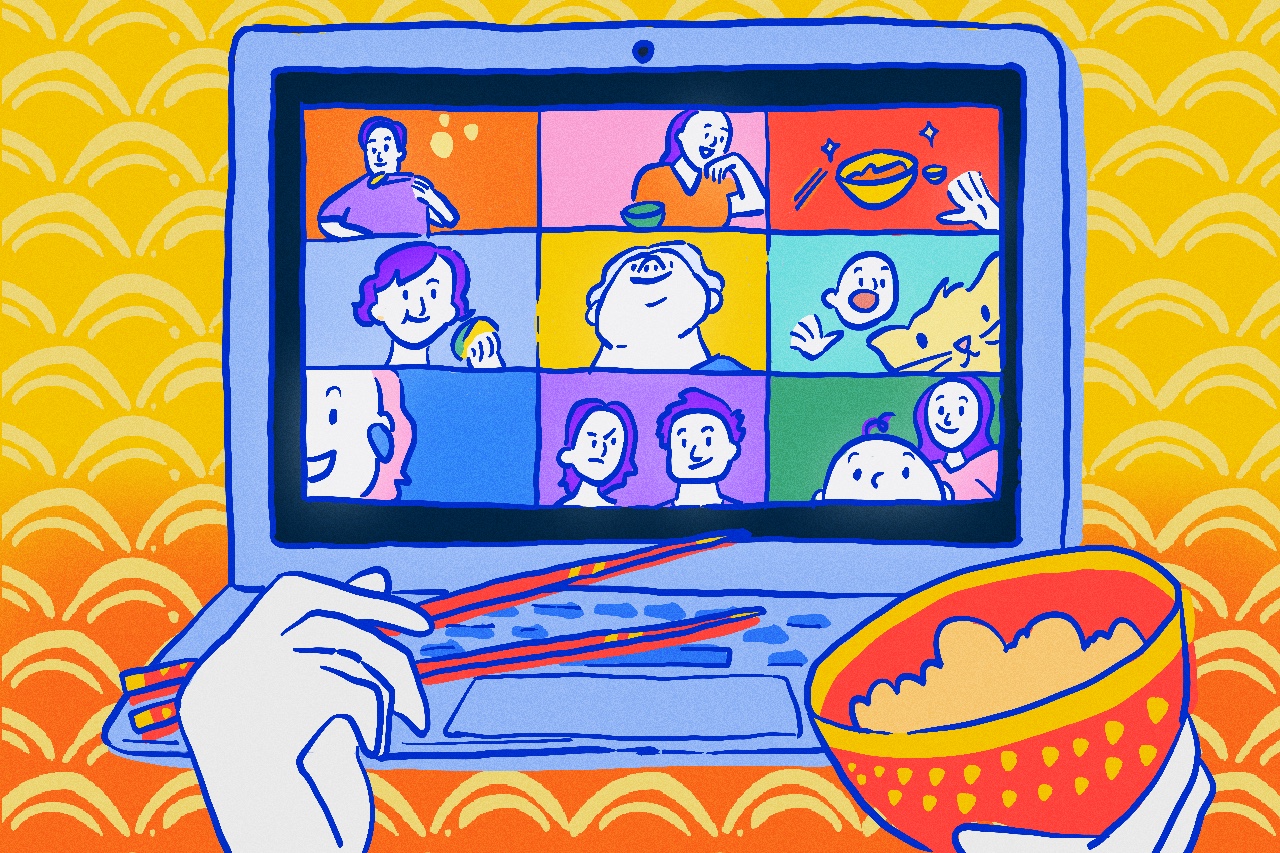All illustrations by Ansh for RICE Media.
I haven’t celebrated Chinese New Year in a good, long while. Not because of the pandemic, but simply because all my relatives are in a different country. So it’s kind of come to a point where I don’t really know how it’s celebrated anymore.
My childhood memories of the festive season when we were still celebrating: sparklers, angbao, and watching adults sit around a square table shuffling really noisy blocks of plastic (that’s what mahjong was to a 5-year-old). In recent years, the only thing I know about CNY celebrations in Singapore (through social media) is that everyone’s placing themselves up as a boyfriend/girlfriend for rent, and there are a lot of hotpot dinners. That’s it.
I only got up to speed recently after some research via the Singapore Chinese Cultural Centre and a couple of friends who sat me through a crash course on what CNY traditions look like today. And man, how things have changed.
Don’t get me wrong, people are still committed to the old ways. They’re all just postmodern now.
OOTDs 2.0.22
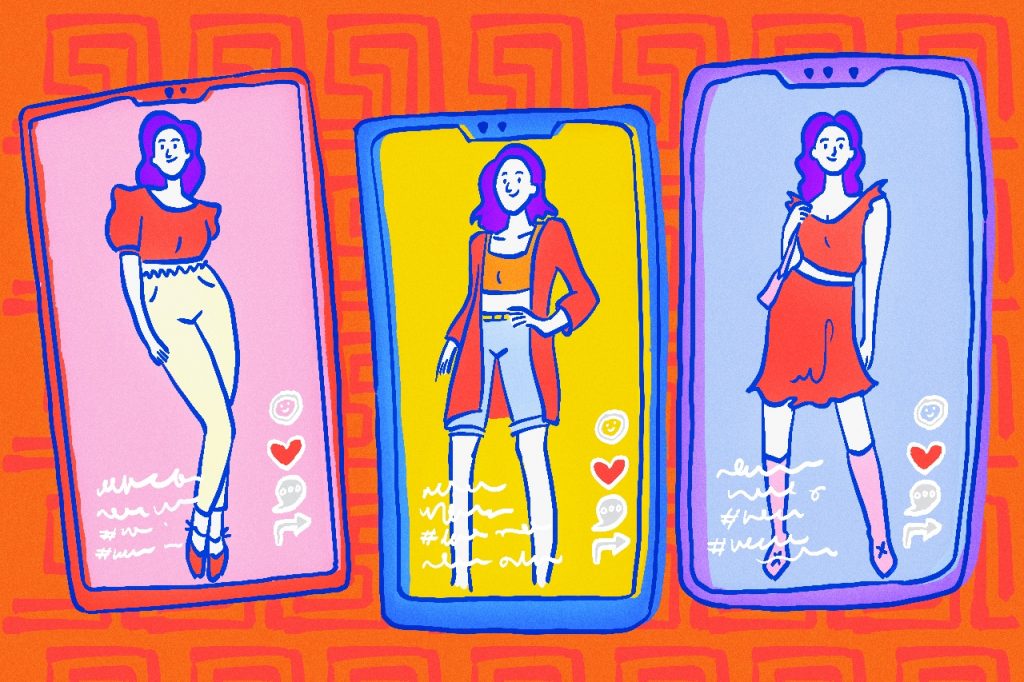
With the reduction in house visits, it’s easier to stick to wearing the same old clothes instead of getting a fresh fit. Which is not recommended, since wearing new clothes to usher in the new year is a way to herald in some good luck. As they say, out with the old and the bygones of the years past, in with the new beginnings. And honestly, who doesn’t want to feel good, looking their best?
In that same vein, say goodbye to boring Instagram OOTDs as you know them from a decade ago. Static photos are so pre-pandemic. In this age, we do TTOD — TikToks of the day. A glittery catwalk at the carpark (complete with pulsating pop tunes of Rihanna and Ginuwine in the background) is honestly the next best thing to showing off our outfits to the world these days.
And with the family around, this is probably the most socially acceptable time of the year to make everyone participate in a dancetok with you. Just remind them it’s not cringetok if everybody’s doing it.
Angbaos: Same Same, But Different
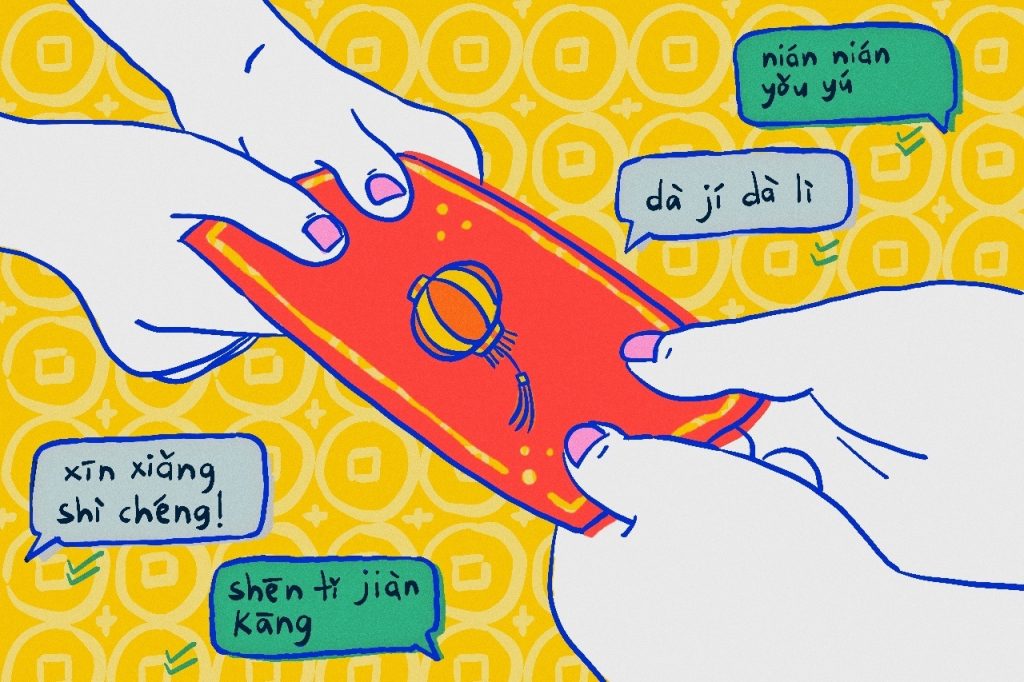
Receiving fewer red packets is kind of expected in this economy, but try stopping a Chinese relative from footing the bill at a family dinner. You’d know something as trivial as physical distance won’t stop your uncle and aunties from gifting you one anyways.
These days, it’s all about the e-angbao and e-greeting, which sometimes come accompanied by animated WhatsApp stickers with cheesy (but endearing) new year messages just in case your relatives are worried you’d miss the angbao notification.
Just like how you would take the opportunity to show off your mandarin prowess in exchange for angbaos in person, you reply back with a whole list of greetings for maximum huats (prosperity) — some you might not know how to pronounce, but that’s okay because what matters is the genuine intention.
Still, nothing quite beats an actual physical angbao if you’re fortunate enough to receive one this year. It’s literally getting your senior’s blessings handed to you. That, and they’re perfect as collectables. There’s just something about the emotional roller coaster you ride when it’s physically placed in your outstretched palms and trying to guess the amount inside before it’s considered a lucky day to open them. None of us can ever tire of it.
They Still Care If You’re Single
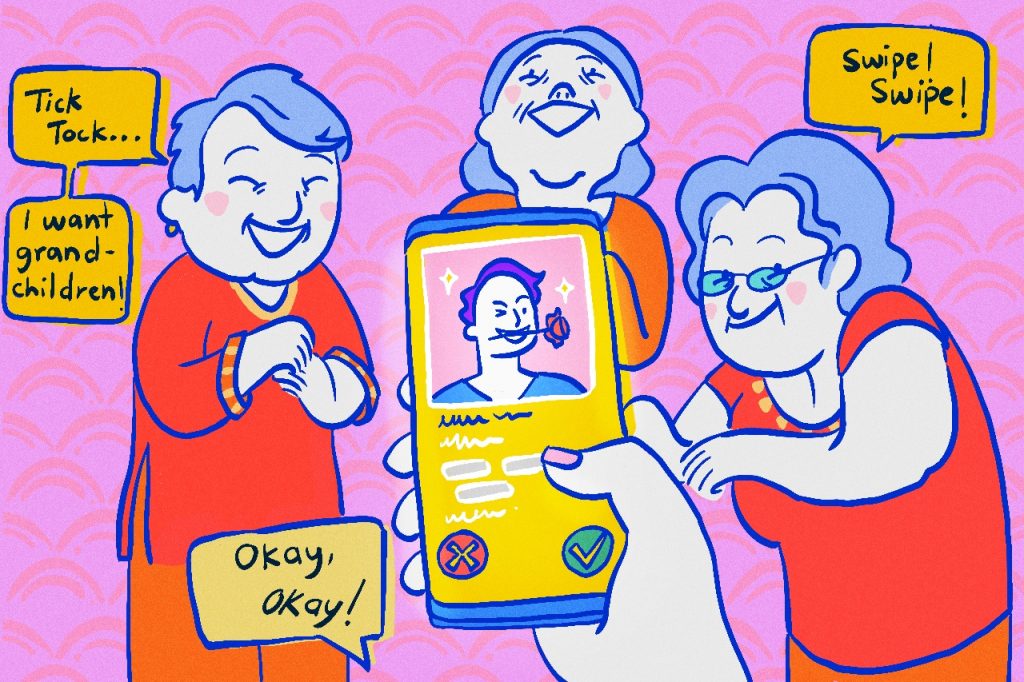
Colour me surprised if anyone actually makes it through a day of visiting (however limited) without having their singlehood questioned. It’s almost inevitable that one cousin will most definitely get into a heated discussion with a relative over their “outdated” views on relationships and marriage.
If your third cousin twice removed (what are you supposed to call them again?) managed to find a lovely wife through Tinder, who’s to say technology isn’t romantic. Matchmaking of yore versus postmodern right swipes, which one will come out on top?
If you don’t pay attention to the words themselves, the squabbling still sounds about the same as the previous years — of supposedly well-meaning seniors trying to catch up with you, and of younger spritely relatives who really hope the older folks could keep up with the times. We only tend to gather as a family in such a setting only once a year, yet the bickering feels more like a reminder that nothing has really changed among us despite the distance.
Ultimately, the real winner from this conversation will be you, because no one will remember you’ve been a single pringle since 1989.
Mystery Meals
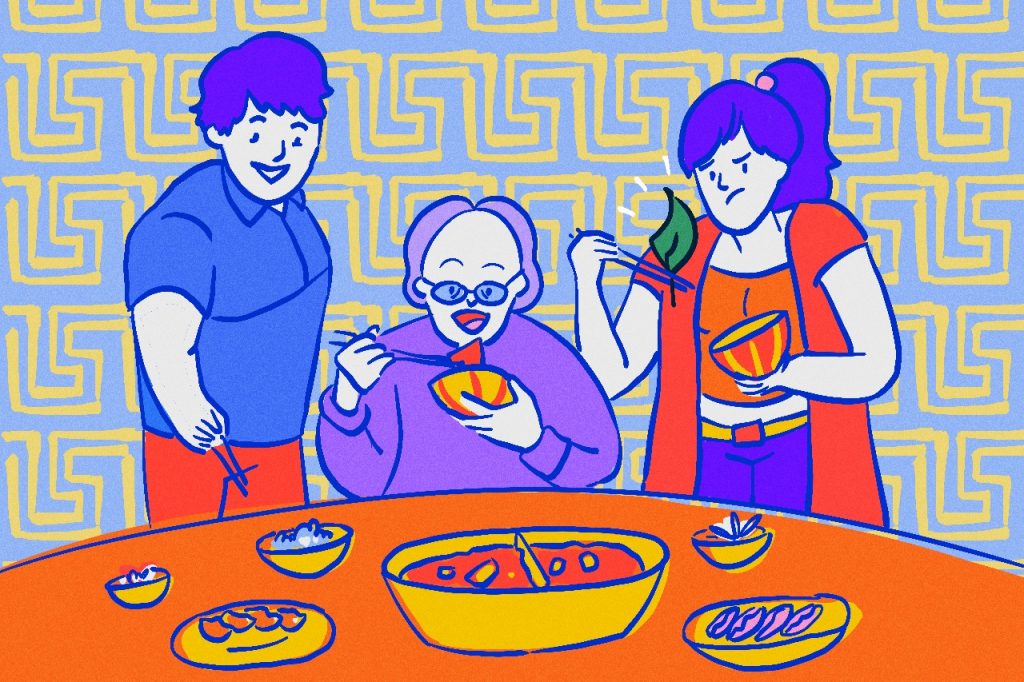
A big part of celebrating the new year is putting on weight eating your body weight in calories, what with food traditionally representing prosperity and wealth and all. Considering how post-pandemic celebrations involve more house visits (in lieu of everyone gathering in one house), you can expect to be eating a whole lot more.
If you’re lucky, an aunt might adapt their traditional menu of fish and meat to tailor to the younger generation’s preference for plant-based diets instead. If not, they might just simply hop on the latest fad and serve up a truffle or salted egg-themed spread. (Hopefully, Aunt May never finds out about the existence of bubble tea hotpot.)
Of course, you can just stuff your face with new year snacks like a good ole’ pineapple tart or the GOAT bak kwa (sweet jerky). When in doubt, there’s always the traditional CNY meal to fall back on — McDonald’s Prosperity Burger and Twister Fries.
Whatever the menu, all that matters is the tradition of stuffing our faces together as a way to signify the solidarity of family.
Prosperity in the Metaverse

Two years into the pandemic, we’ve since adapted to the new normal, which is: If it can be done online, it will be done online.
Yes, even praying at temples can be done through the internet, so what of online versions of CNY-favourites like mahjong and luck-based multiplayer tabletop games? In times like the current, summoning a little extra luck during the games might just make all the difference for the rest of the year.
It’s also a great way to connect with friends and families you’re in a long-distance relationship with. This way, even if online reunion dinners get messy with everyone talking over one another, there’s still a way to join in on the other fun.
Nothing will get in the way of the most hardcore mahjong-junkies like Grandma, even if the webcam’s angled weirdly up her nose. Who knows? Perhaps sooner or later, even lion dances will take place in the metaverse.
2088: Chinese New Year
Let’s fast forward to 2088; how would Chinese New Year celebrations change by then? Would we hand out angbaos filled with cryptocurrency codes? Would we be 3D-printing fresh pineapple tarts at home?
I, for one, would love nothing more than a teleportation system to be up and running, just to make visiting a whole lot easier. Beam me up, ah ma.
The point I’m making here is that Chinese New Year celebrations have always taken on various versions, but that doesn’t necessarily mean the celebrations have their meaning.
As it is, the pandemic has accelerated the production of alternative, convenient means for people to commemorate the festivities together. Even if our ancestors might baulk if they saw what we do today (re: cringetoks).
Much like how flying cars aren’t a thing today, the chances of any of the above ruminations happening are not as likely as we think. Mostly because everything would likely return to normal once the pandemic (eventually) blows over, but also because no one actually likes playing mahjong online.
What’s more likely are subtle shifts — the same way we’ve gone from balancing eggs to depositing our angbao money in the bank on LiChun (The Beginning of Spring Festival) for extra luck.
Wherever the Wind Blows
Not gonna lie, even if I’ve had a good decade to get used to the lack of new year celebrations in my home, I still feel a little sentimental knowing many practices from my childhood will remain just that — a childhood memory. But change is constant, and culture is ever-evolving. It’d be naive of me to expect practices to remain exactly the same. After all, our culture reflects our way of life.
Maybe this year I’ll jostle with the elderly to light incense at a temple before flipping through online resources to celebrate the new year in postmodern style.
The green reed which bends in the wind is stronger than the mighty oak which breaks in a storm. It’s the same for the traditions of yore — we’ve been responding to age-old questions with new-age answers.

